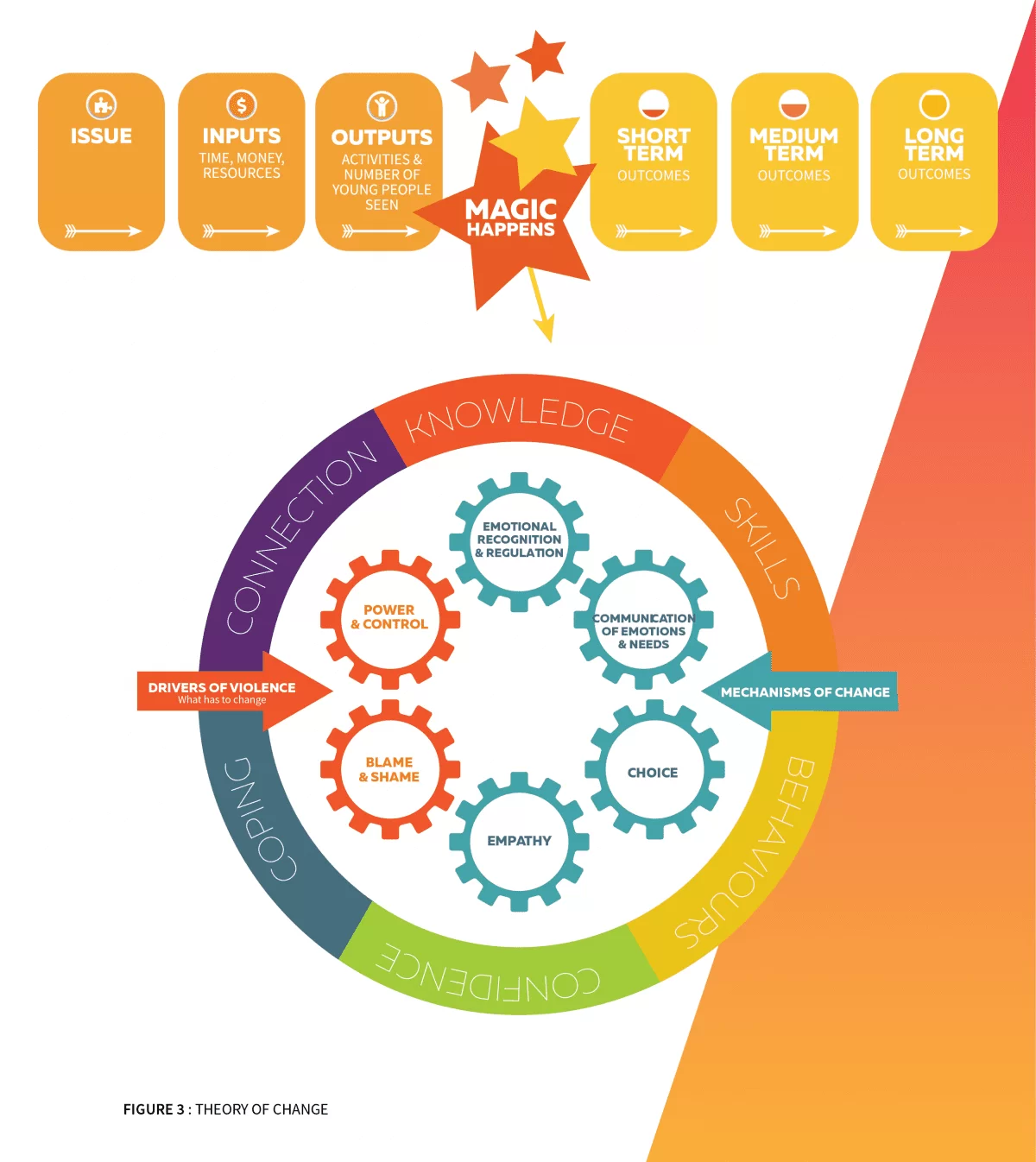Theory of Change
NNN REFLECTS THE VALUE PLACED ON RELATIONALITY & RESPONSIVENESS
NNN achieves outcomes for young people and the workers that support them by bringing them to a point-of-readiness for recidivist-focused interventions.
Expected outcomes from NNN are linked to changes that occur for young people and workers because of their participation in the program, in particular changes to self-awareness, self-regulation, and skills for connection.
The Theory of Change underpinning NNN suggests these changes come about through:



Feedback
Heard, believed & supported
Feedback from Department of Communities and Justice-Youth Justice staff is that young people want to work with NNN, they arrive on time and ready for the program, often stay longer than the set program timeframes (unheard of according to their caseworkers) and routinely report feeling heard, believed, and supported by NNN staff.
Where Magic Happens
Positive Engagement of Young People
Content & Delivery
We believe the positive engagement of young people with NNN reflects the value placed on relationality and responsiveness. While traditional program logic assumes that ‘magic happens’ somewhere between inputs, outputs and outcomes, the ‘magic’ in NNN is found in both content and delivery.
Trauma-informed & Culturally Sensitive
Working from a trauma-informed and culturally sensitive ethos, NNN recognises that young people need skills and abilities to recognise, regulate and communicate their emotions, needs and urges; empathy to respond to others and themselves; an understanding of power, control and shame; and opportunities to explore what positive choices might look like in their lives.
Engagement in Violence and Exposure to Risk
Young people’s engagement with violence and exposure to risk for violence varies. As a preventive intervention NNN can be delivered as a selective preventive intervention targeting young people with increased risks of using violence or an indicated preventive intervention targeting individuals already using violence in their relationships.
Shifts in Relationships & Connections
Depending on engagement and exposure, the program achieves a reduction in offending through shifts in relationships and connections for some young people, and for others, it is an ideal preparation for more targeted recidivist intervention. In all instances it is recommended that NNN sits alongside ongoing case work with young people to manage and support wellbeing and throughcare (or thorough care?)

